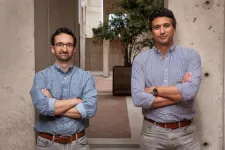(Press-News.org) A study digs into a topical debate: should institutions accept donations from bad people? Jeffrey Epstein donated to MIT after he was a convicted sex offender. The Sackler family donated to museums around the world, which had to decide whether to keep their names on display and whether to continue accepting funds after the family faced widespread criticism and legal consequences for pushing addictive painkillers on the public. Ethicists are often split on whether organizations should take money from morally tainted donors. The money can support good outcomes in the world, but the reputation of the organization may suffer and the public may be outraged. Zoe Rahwan and Christina Leuker explored the question by surveying over 4,500 laypeople and almost 700 professional fundraisers between December 2019 and March 2021. The authors investigated several factors that might influence judgments on whether donations should be accepted, including donation size, anonymity, institution type, and the nature of the moral transgression. The latter variable was the most predictive of donation acceptability; both the public and professionals broadly agreed that organizations should reject donations from criminals and accept donations from morally ambiguous individuals. Professionals were hesitant to accept particularly large donations from morally compromised individuals, a pattern not seen in laypeople. Anonymity was not a major factor in the judgements of either of the surveyed samples. In general, respondents expected universities and museums to be more stringent in their standards than charities.
END
The ethics of accepting tainted donations
2023-09-26
ELSE PRESS RELEASES FROM THIS DATE:
Yoga improves quality of life, cardiovascular function in heart failure patients
2023-09-26
Previous studies have shown that yoga therapy and lifestyle modifications have improved heart failure patients’ quality of life and enhanced their cardiovascular function. A new study, presented at the American College of Cardiology Asia 2023 conference, examines the long-term outcomes of yoga therapy to determine the benefit of adding yoga therapy as a complementary treatment in the management of heart failure.
Heart failure is a form of cardiovascular disease where the heart muscle is either too weak or too stiff to pump properly, often leading to fluid buildup, shortness of breath and other complications. ...
Understanding how choice overload in ChatGPT recommendations impacts decision-making
2023-09-26
Over the past few years, the field of artificial intelligence (AI) has witnessed numerous breakthroughs. One such remarkable milestone was the development and adoption of chatbots and conversational agents based on large language models, including ChatGPT. These systems can engage in realistic, human-like conversations with users and help them in many ways, such as by curating information, generating recommendations, or assisting in complex tasks. Interestingly, owing to their pre-training on large amounts of data, chatbots like ChatGPT are capable of generating highly personalized recommendations, considering factors like user’s interests, ...
Elevated temperatures and climate change may contribute to rising drug and alcohol disorders
2023-09-26
Hospital visits from alcohol- and substance-related disorders are driven by elevated temperatures and could be further affected by rising temperatures due to climate change, according to new research by environmental health scientists at Columbia University Mailman School of Public Health.
The study, which is published in the peer-reviewed journal Communications Medicine, is likely the first comprehensive investigation of the association between temperature and alcohol- and substance-related hospital visits.
“We ...
Unleashing the power of AI to track animal behavior
2023-09-26
LA JOLLA (September 26, 2023)—Movement offers a window into how the brain operates and controls the body. From clipboard-and-pen observation to modern artificial intelligence-based techniques, tracking human and animal movement has come a long way. Current cutting-edge methods utilize artificial intelligence to automatically track parts of the body as they move. However, training these models is still time-intensive and limited by the need for researchers to manually mark each body part hundreds to thousands of times.
Now, Associate Professor Eiman Azim and team have created GlowTrack, a non-invasive movement tracking method that uses fluorescent dye markers to train ...
Successful optical biosensing using dual optical combs: High sensitivity and rapid detection of biomolecules with promising prospects
2023-09-26
Key points
Biosensing has been valuable for detecting biomolecules, including novel coronavirus (SARS-CoV-2), but achieving both high sensitivity and rapidity has been challenging.
Rapid and high-sensitivity detection of SARS-CoV-2 was achieved by utilizing optical-to-electric frequency conversion of optical combs and active-dummy temperature compensation with dual-optical-comb configuration.
This enables ultra-early detection of infectious pathogens, health biomarkers, food contaminants, environmental hormones, and more, contributing to various preventive measures.
Research Introduction ...
New book spotlights sophisticated Indigenous responses to mining in the conflict-affected North Cauca region in Colombia
2023-09-26
Indigenous communities act in sophisticated ways to deter unauthorised mining in Colombia, shows a recently published book by Postdoctoral Researcher Diana Arbeláez-Ruiz from the University of Eastern Finland. The book focuses on Indigenous people and mining in Colombia’s North Cauca region, where multiple armed groups and illicit economies operate. The research the book is based upon was carried out in 2016–2019. As the illegal armed group presence and illicit economies situation in the region has intensified since, the book remains highly topical today.
Published by Routledge, the book documents what the Nasa Indigenous community do to stop unauthorised mining in their ...
Antarctica’s glacial border migrates for miles with the tide
2023-09-26
*Embargoed until 07:00 BST / 08:00 CEST, 26 September 2023*
The grounding line of the southern Ronne Ice Shelf in Antarctica can shift up to 15 km (six miles) with changing tides, new analysis shows. The research, published today in The Cryosphere, examines the key region where land-based Antarctic ice spills over into the surrounding ocean. Observing and understanding the dynamics of this region can help scientists predict Antarctica’s response to climate change, and so how much global sea levels will rise.
“We typically think of ice sheet change as being very slow, ...
Why endangered wildlife needs AML law coverage and banks need to share IWT intelligence
2023-09-26
The illegal wildlife trade (IWT) is a fast-growing ‘financial portfolio’ within the larger illegal, violent, parallel transnational global economy. As such, it creates state-level security and development risks, especially in source countries.
IWT is also known as wildlife trafficking, which includes the illicit trade of animals and plants, and derivative products such as pangolin scales, rhino horn, elephant ivory, lion and tiger bones, and leopard pelts.
But many highly developed countries signed up to CITES, are yet to implement a crucial legal instrument required to prosecute IWT and the associated financial ...
Why ecological restoration without Indigenous leadership won’t last
2023-09-26
Imagine you’re sitting in your living room on a quiet evening with your family reading a book, when suddenly, complete strangers let themselves in your front door. If that wasn’t enough of a shock, before you can even find your voice to ask who they are, they begin rearranging your furniture, painting your walls different colors, bagging up possessions that are important to you, and appear to be swapping out the food in your refrigerator.
They do not seem to mean you any harm and work with such purpose that you question yourself, wondering whether you may have forgotten ...
EWG study: Humans serve as sentinels for ‘forever chemicals’ harm to wildlife health
2023-09-26
WASHINGTON – A new paper by Environmental Working Group scientists proposes an intriguing concept: Humans can serve as a valuable resource for understanding the impact on other animal species of the toxic “forever chemicals” known as PFAS.
“PFAS pollution is not just a problem for humans,” said David Andrews, Ph.D., senior scientist at EWG. “It’s a problem for species across the globe. This new paper delves into how humans serve as an early warning system ...





